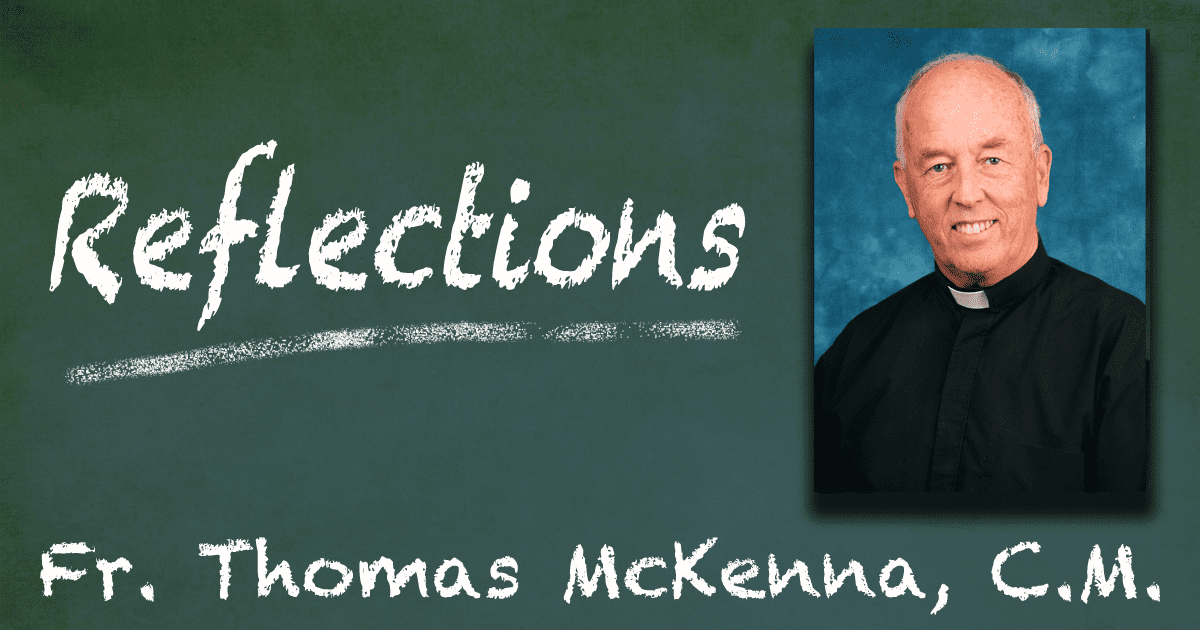One of the favorite images seen all through the Scriptures is the feast, the sumptuous banquet overflowing, as Isaiah pictures it, with “juicy, rich food and choice wines.” It conveys fullness, a time and place where people will lack for nothing, especially the love and good will of everybody around them. Or in that restful scene of psalm 23, “The Lord is my Shepherd. I shall not want. In green pastures He gives me repose. Besides restful waters He will lead me.”
But to this image, Isaiah adds another detail which is meant to inject a shot of realism into this Paradise. He mentions a veil which hangs over the place and cuts off our access to it. He describes a thick spider web strung between us and the banquet which blocks out the light and happiness coming from it.
In today’s terms, and maybe especially in these tense weeks, a word that might be substituted for that veil is “division” – all the walls and boundaries that have sprung up in and between ethnic groups, political persuasions, religious positions and indeed between members of families.
Jesus’ parable of the wedding banquet the King wants to give for his son follows up on this theme. The Ruler meant it to be an extravaganza with the cream of society gathered around his table. But those invitees put a major damper on His plans by making lame excuses for not coming. Talk about dropping a veil (better a thick wet blanket) over the already arranged feast. It’s that reality again, division, the people supposedly united in one Kingdom but rudely walking off in separate directions.
What does the King do to cut through this sticky web? He goes out to the highways and crossroads and there invites in everyone passing through, no matter what their social status. They come in, get along famously, and fill themselves up at the banquet. His bold move allows this second group to get past any divisions among themselves, to come in and enjoy the feast together.
To return to our day and its divisiveness. Are there moves that we as God’s people could make to heal divisions, to cut through the different veils that separate us — not only from each other but also from our entrance into that heavenly banquet? What are some concrete steps, some new actions and attitudes that would ease the ruptures most everyone sees — and especially feels — in our society?
This past year, the US Bishops began a campaign entitled, “Civilize it: Dignity Beyond the Debate.” One of their sentences reads: “Conversation in the public square is all too often filled with personal attacks and words that assume the worst about those with whom we disagree. We are in need of healing in our families, communities and country.”
This movement, “Civilize it: Dignity Beyond Debate” is a call to break through one or more of those veils and webs of division so as to honor the human dignity of one another, whether on-line, around the dinner table, or even in the next pew. Their initiative is another instance of different Gospel-inspired efforts to draw back those veils by approaching our interactions and conversations with, in their words, “civility, clarity and compassion.”
St. Vincent was no stranger to divisive forces. Late in his life, worried for his own stressed community, he prays, “O Savior, You who have banished form the Company acts contrary to … charity, preserve it in that cordial union in which, by your grace, it now lives. Please do not allow it to be changed by any breath of pride or by the spirit of division, which is on the watch to ruin us.” ( Volume: 12, p. 217-8,) May 1659
Are these kinds of actions difficult and messy? No doubt. They require resolve and creativity and strength – especially the underlying strength that comes from our loving God.
In a pressured time in his own life, St. Paul fell back on a saying that can serve us well in our time. In faith, he made this affirmation: “I can do all things in him who strengthens me “ (Phil 4:13) In these divided times, may we also lean back on this same pillar of strength, The Lord Jesus who promises to be with us all our days.








0 Comments